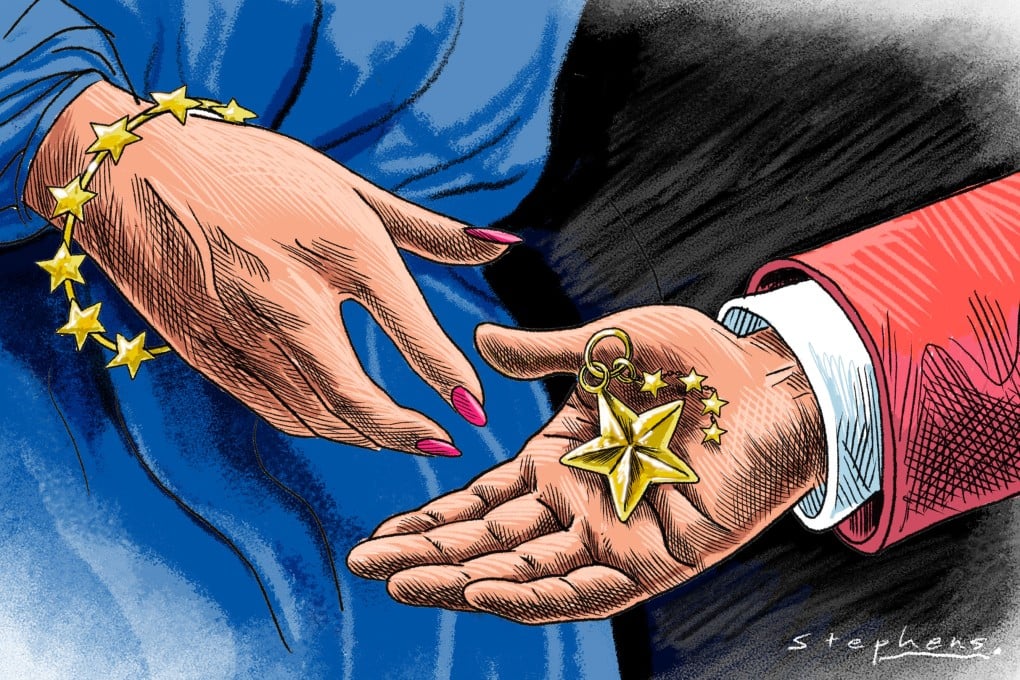Advertisement
Opinion | Why the EU must not spurn China’s charm offensive
- EU-China relations have deteriorated since the pandemic over matters such as human rights, trade disputes and Russia’s invasion of Ukraine
- This week’s summit offers both sides a chance to remember how much they need each other and would be better off working together
Reading Time:4 minutes
Why you can trust SCMP
2

European Commission President Ursula von der Leyen, European Council President Charles Michel and High Representative Josep Borrell are set to arrive in Beijing this week for the EU-China summit. Hopes that the European Union’s power trio can thaw the current ice age with Beijing are not high. However, on closer inspection, circumstances might give reason for a turning point, if only out of necessity for both sides.
Advertisement
The EU-China summit will mark the first in-person meeting since relations deteriorated during the Covid-19 pandemic. Reasons for the downward spiral between Brussels and Beijing range from economic to geopolitical interests. The latest face-off was caused by the EU’s desire to take measures against Chinese subsidies in areas such as wind turbines, solar products and electric vehicles.
The latter particularly illustrates the status quo of EU-China relations. Similar to what it did with household goods in the 2000s and 2010s, China has established itself as one of the leading providers in the electric vehicle (EV) market. Chinese EV exports to the EU increased 112 per cent in the first seven months of 2023 and 361 per cent from 2021.
The latest figures indicate that Chinese EVs will account for 15 to 16 per cent of the European auto market by 2025. However, just like other Chinese products in the past, EVs are too cheap in the eyes of the EU – made possible via government subsidies – which fears that China is meddling with the market for its own cars.
As a result, the European Commission initiated an investigation into the subsidies in October, which caused resentment in China. In addition to these latest disagreements, the European Parliament voted to put the EU-China Comprehensive Agreement on Investment on hold for the time being following a diplomatic crisis that emerged over the treatment of Uygurs.
Advertisement
All of this is happening at a time when the EU is shifting to an approach of “de-risking” towards China. EU countries are expected to reduce their dependence on critical sectors and supplies from Beijing while limiting China’s ability to obtain advanced technologies that could be used for military purposes.

Advertisement
